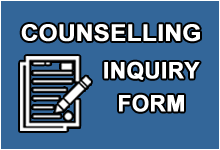Ten Self-help Strategies For Beating Depression
 Depression can be a difficult mountain to overcome. Due to symptoms such as extreme fatigue, difficulty concentrating, and a short attention span, those experiencing depression may face difficulties in not only seeking help but also maintaining actions that are beneficial. Alongside the help of trained professionals, such as doctors and therapists, there are certain techniques that those experiencing depression can use to aid in the treatment of their depression. Ten techniques have been outlined by Dr. Jackson-Triche, Dr. Wells, and Ms. Minnium and are summarized below.
Depression can be a difficult mountain to overcome. Due to symptoms such as extreme fatigue, difficulty concentrating, and a short attention span, those experiencing depression may face difficulties in not only seeking help but also maintaining actions that are beneficial. Alongside the help of trained professionals, such as doctors and therapists, there are certain techniques that those experiencing depression can use to aid in the treatment of their depression. Ten techniques have been outlined by Dr. Jackson-Triche, Dr. Wells, and Ms. Minnium and are summarized below.
1. Have a regular bedtime
One of the most common symptoms of depression is sleep disruption. Having a regular bedtime and bedtime routine can make a big difference in falling asleep easily and getting restful sleep. The bed-time routine shouldn’t be something that is alerting or requires focus, such as watching television, reading an exciting book, or surfing the internet, but rather should be something relaxing and requires minimal energy, such as having a warm bath or listening to relaxing music. By doing so, you are able to condition yourself to become tired at a certain time and that activity signals your body that it is time to rest, rather than tossing and turning all night.
2. Get daily, moderate exercise
Various studies have shown that getting routine exercise can help increase mood. While immediate thoughts may suggest that getting regular, moderate exercise may take up a lot of time or be costly with the purchase of a gym membership, it does not have to be the case. Rather it can be as little as 20 minutes per day, three times per week, and it can be activities such as working out to a video at home or walking in your neighbourhood. Remember not to exercise closer than three hours before your bedtime as it takes about three hours for your body to begin to feel relaxed after physical activities.
3. Manage stress
While it is impossible to get away from stress completely, it is possible to manage it. Particularly bad circumstances can lead to stress being a problem that impacts your overall health and well-being, including the development and perpetuation of depression. As such, the goal is not to eliminate stress, but rather to develop useful ways to respond to different situations. Spiritual practice has been one activity that has proven beneficial to many, as following a spiritual tradition or faith can be a key factor in maintaining hope and decreasing anxiety. Relaxation techniques, such as visualization, massages, relaxing audio recordings, warm baths, and deep breathing can also assist by alleviating muscle tension that accompanies stress.
4. Avoid being Alone for long periods
Not only has research shown that those with poor social support are at a greater risk of experiencing depression, but also that depression in of itself can cause intense feelings of loneliness and isolation, further causing people to withdraw from friends and family and increasing feelings of depression, perpetuating a vicious cycle of depression. Those experiencing mild to moderate symptoms of depression can benefit from social activities that don’t require a lot of energy or effort; the key is to avoid activities that make life feel more difficult. An example of connecting with others is finding self-help groups of individuals experiencing similar challenges to yours. However, those experiencing severe symptoms of depression often find that socializing is too much to bear. Consequently, friends and family should become involved in helping and supporting those who are depressed because overcoming isolation is a difficult hurdle for the depressed to overcome. The risk of suicide is also greater when you live alone and have no social support. If you have thoughts of harming or killing yourself, you should call 911 or your local suicide hotline.
5. Keep scheduled appointments
Despite the difficulties in concentrating , poor memory, and low motivation, regular visits to the doctor or your counselor can help by giving you tools to get better, assess progress, evaluate treatments, and modify where necessary. Methods for keeping scheduled appointments and decreasing stress surrounding them include the following:
- make appointments at times that are convenient for you
- keep a calendar with you at all times
- leave notes on your fridge or mirror with a list of upcoming appointments
- ask for reminders of the date and/or time of appointments
- ask a friend or family member to have another copy of your schedule so they can remind you
- making arrangements for work and/or travel well in advance so you’re not stressed trying to do things at the last minute.
6. Record and report all medication side effects
It is possible that treatment plans and medications need to be modified. Thus it is important to keep a record of the side effects of medications to tell your doctor and allow for any adjustments as necessary. Remember not to give up on your medication too soon as it takes time for your body to adjust to new medication. Most doctors will ask to see you again in approximately six weeks after prescribing a new medication, because by then whey will have a good idea as to whether or not the medication is working for you.
7. Eat a healthy diet
Depression can often change appetite and body weights. However, by actively engaging in a healthy diet, you are able to keep your body in balance as it begins and continues the healing process.
8. Avoid taking on new or difficult tasks at work or at home
As previously mentioned, difficulty concentrating or paying attention are common and early symptoms of depression. For someone experiencing depression, it is often beyond their capacity to take on something new, particularly due to the added stress of each added responsibility. Thus it is recommended that you avoid as much as possible any new responsibilities until symptoms improve.
9. Follow doctor and therapist recommendations
If you are experiencing depression, it is vital that you stick with your treatment plan and follow all special instructions. If you are on medication prescribed by a doctor, take the prescribed dosage each day. It can be easy to fall into the habit of skipping doses on good days or take extra to catch up on missed days, but this will prevent progress and may even make matters worse. It can also be tempting to stop taking medication all together once you start to feel better. However, it is important to resist that temptation as it can sometimes take a while after symptoms begin to dissipate for it to be safe to come off medication without relapsing. When it comes to psychotherapy, studies show that Cognitive Behavioural Therapy (CBT) is very effective in treating depression. CBT homework that is given can be a big part of your recovery. Despite feelings of fatigue, it is important to do such homework to allow for progress. If you have support, you may have someone help you with the homework and keep you accountable for doing it.
10. Avoid alcohol and illicit drugs
Alcohol and many illicit drugs often have a depressant effect, meaning they contribute to a depressed mood regardless of whether you’re experiencing depression or not. In addition to possibly adding to the depression, these substances are also often addictive. Thus, there is a risk of becoming physically dependent on such substances. If you fear you are developing a problem with drugs and/or alcohol, speak to your doctor or reach out to a counselor. They can provide you with community resources or adjust treatment plans to ensure your safety and recovery.
In conclusion, though it may be difficult to do actions that are counterintuitive to the depression itself, these actions can improve depression symptoms and help over time to overcome it. You can begin your step to victory over depression today by using the above strategies and by sticking to them despite the feelings to do otherwise.



















